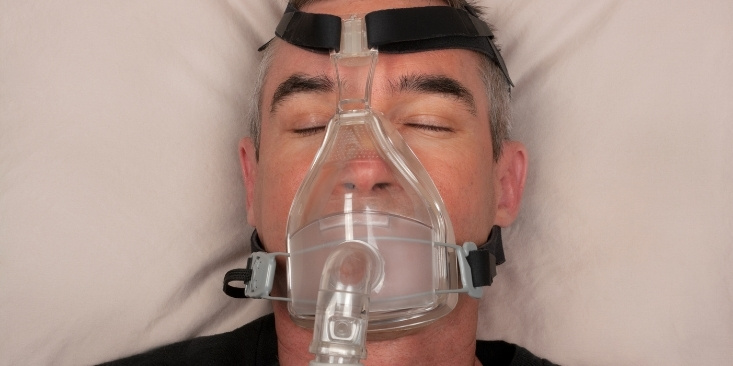How Can Oral Appliances Help Reduce Snoring and Improve Sleep Apnea?

Snoring and sleep apnea are common sleep disorders that affect millions of people worldwide. Snoring occurs when airflow is partially blocked during sleep, leading to vibrations of the throat tissues. Sleep apnea, particularly obstructive sleep apnea (OSA), involves repeated interruptions in breathing. These issues can disrupt sleep, affect health, and impact relationships.
Addressing them is crucial for overall well-being. Poor sleep quality can lead to daytime fatigue, irritability, and long-term health risks, such as cardiovascular disease. Oral appliances offer a non-invasive solution to help reduce snoring and improve sleep apnea symptoms. These devices, designed to reposition the jaw and keep the airway open, can lead to better sleep quality and enhanced health.
This blog will explore the mechanisms, benefits, and maintenance of oral appliances for snoring and sleep apnea relief.
Understanding Snoring and Sleep Apnea
What is Snoring?
Snoring is a sound produced when the airflow through the mouth and nose is obstructed. This obstruction can be due to various factors, such as nasal congestion, throat muscle relaxation, or obesity. Snoring affects the individual and those nearby, leading to sleep disturbances and frustration in relationships.
What is Sleep Apnea?
Sleep apnea is a serious sleep disorder characterized by repeated breathing interruptions during sleep. Obstructive sleep apnea (OSA) is the most common form, where throat muscles intermittently relax and block the airway. This can result in gasping or choking sensations that disrupt sleep.
Symptoms and Health Risks
Common symptoms of sleep apnea include loud snoring, choking sounds, excessive daytime sleepiness, and difficulty concentrating. Untreated sleep apnea poses serious health risks, such as high blood pressure, heart disease, stroke, and diabetes. Understanding these conditions is vital for seeking appropriate treatment.
The Role of Oral Appliances
What are Oral Appliances?
Oral appliances are dental devices designed to treat snoring and sleep apnea. They work by repositioning the jaw or tongue to maintain an open airway during sleep. The most common type is the mandibular advancement device (MAD), which gently pushes the lower jaw forward.
How Do They Differ from Other Treatments?
Oral appliances differ from other treatments, such as Continuous Positive Airway Pressure (CPAP) machines and surgical options. CPAP machines deliver a continuous stream of air to keep the airway open, but they may be uncomfortable for some users.
Surgery may involve invasive procedures that carry risks. In contrast, oral appliances are non-invasive, often more comfortable, and easier to use.
How Do Oral Appliances Work?
These devices help keep the airway open by repositioning the jaw and preventing the tongue from blocking the throat. This mechanism reduces snoring and alleviates the severity of sleep apnea. Oral appliances are adjustable, allowing customization for optimal comfort and effectiveness.
Benefits Over Other Treatments
Users of oral appliances often report better adherence compared to CPAP. The comfort and convenience of these devices make them a popular choice for many individuals seeking relief from snoring and sleep apnea.
Benefits of Using Oral Appliances
Reduction in Snoring
Oral appliances effectively reduce snoring in many users. Studies indicate that up to 80% of patients experience significant improvement in snoring after using these devices. Personal testimonials frequently highlight reduced nighttime disturbances, leading to improved relationships and better sleep quality.
Improvement in Sleep Apnea Symptoms
Oral appliances have proven effective in treating mild to moderate obstructive sleep apnea. Research shows that they can reduce the apnea-hypopnea index (AHI), a measure of sleep apnea severity. Many users report feeling more alert and energetic during the day after starting treatment.
Quality of Life Improvements
Improved sleep quality positively affects mood, concentration, and overall health. Users often experience fewer health-related issues after using oral appliances, contributing to an enhanced quality of life.
Comfort and Convenience
Oral appliances provide a level of comfort that CPAP machines may lack. Users often find them easier to wear and more portable than bulky machines. This convenience encourages consistent use, leading to better outcomes.
Maintenance and Care of Oral Appliances
To ensure the effectiveness and longevity of oral appliances, proper maintenance is essential. Here are some tips for cleaning and caring for these devices:
- Daily Cleaning: Rinse the appliance with warm water after each use. Use a soft toothbrush and mild soap to remove debris and bacteria.
- Soaking: Soak the device in a specialized cleaner or a vinegar solution weekly to eliminate odors and buildup.
- Storage: Store the appliance in a protective case when not in use. This prevents damage and contamination.
- Regular Check-ups: Schedule regular appointments with your dentist or sleep specialist. They can assess the fit and function of the appliance and make necessary adjustments.
- Monitor Changes: Keep track of any changes in your sleep patterns or comfort levels. Inform your healthcare provider if you experience any issues.
By following these maintenance tips and attending regular check-ups, users can ensure their oral appliances remain effective and comfortable.
Addressing snoring and sleep apnea is crucial for improving health and overall quality of life. If left untreated, these conditions can lead to serious health risks. These appliances offer a viable solution for many individuals, providing comfort and effectiveness.
If you or someone you know struggles with snoring or sleep apnea, seek professional advice for personalized solutions. Consulting with our sleep specialists can help identify the best treatment options for your specific needs. Explore the benefits of oral appliances and take the first step towards better sleep today.




